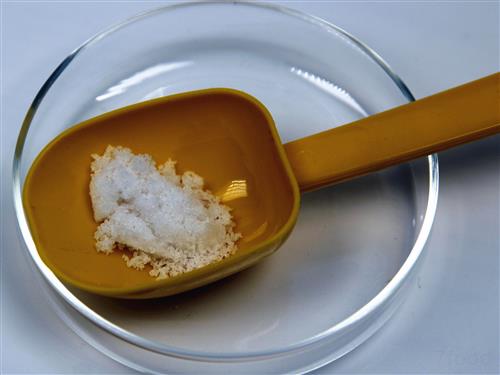
Privacy statement: Your privacy is very important to Us. Our company promises not to disclose your personal information to any external company with out your explicit permission.
![]() June 08, 2018
June 08, 2018
An Iodized Salt is a refined salt that does not contain iodide in Table Salt. Iodine is an important raw material for the synthesis of essential thyroid hormones that influence the body's production, development and metabolism. Iodine exists in nature, and people mainly ingest water, food, vegetables, and the surrounding environment.
The average daily salt intake of urban residents in China is 11 grams, and rural residents reach 17 grams. This means that the majority of iodized salt in the market is calculated to be 20-50 micrograms per gram of iodine, and the daily intake of iodine by the Chinese has reached a staggering 220-850 micrograms, far exceeding the 200 micrograms/day defined by the World Health Organization. Security line."
Excessive iodine can cause goiter and iodine hyperthyroidism and other diseases, but the cause of thyroid disease is more complex, with the environment, diet, mood, etc., iodine intake is only one of the factors. Two-thirds of the human body's iodine is present in the thyroid gland. Iodine deficiency or excess iodine can cause thyroid problems. Therefore, it is critical to supplement iodine scientifically.
The benefits of iodized salt:
The government lowered the standard for iodized salt for Edible Salt because the monitoring results of iodine deficiency conditions in recent years showed that the iodine nutrition level of residents has reached the standard. However, this does not mean that we do not need iodine supplementation. From the monitoring point of view, the health risk of iodized salt consumption by residents of iodine-deficient areas is less than the consumption of iodized salt. At present, the Chinese do not lack iodine in general because we have been consuming iodized salt for 20 years. Regarding whether people in coastal and developed areas can not eat iodized salt, the health administrative department has conducted resident iodine intake surveys in four coastal areas in Shanghai, Zhejiang, Fujian, and Liaoning in recent years, and found that the people in these areas eat kelp. Iodine-rich foods such as sea fish and fish are not as much as people think. Nearly 85% of the iodine in the diet comes from iodized salt, and iodine from food only accounts for 13.1%. If you do not eat iodized salt, more than 97% of the residents lack of iodine intake, the risk of iodine deficiency still exists. In addition, dietary intake of iodine in the human body can only survive for 100 days. In iodine-deficient areas, people do not make up for iodine for 100 days, and most areas are iodine-deficient. Therefore, most people need long-term consumption of iodized salt.
Iodized salt can prevent 'big-neck disease'. In the past, there were many 'big-neck patients' in some areas. Now that the government has added iodine to salt, people can make up for iodine when they eat three meals a day. This is very good. . Medical experts explained that iodine deficiency disorders are caused by the lack of iodine in the environment where people live and that the body's lack of iodine can lead to endemic goiter, deaf-mute disease and other diseases. It can also cause miscarriage and premature birth. Congenital malformations, and fetal congenital malformations, the most important of which are affecting adolescent brain development, resulting in mental retardation.Iodine can help children and adolescents grow up healthily; adult metabolism also requires the participation of iodine; iodine also has on the human reproductive system Impact, so, eating iodized salt is very important for everyone.

The above is the Non-iodized salt benefits and hazards we have listed for you. You can submit the following form to obtain more industry information we provide for you.
You can visit our website or contact us, and we will provide the latest consultation and solutions
Send Inquiry
Most Popular
lastest New
Send Inquiry
Send Inquiry

Mr. Nassen
Email:
Send Inquiry Tel:86-536-2117708
Fax:86-536-2117708
Mobile Phone:+8615305363298
Email:
Address:Financlal Plaza, NO.4899,Dongfeng East Street, Gaoxin District, Weifang, Shandong
Related Products List
Mobile Site


Privacy statement: Your privacy is very important to Us. Our company promises not to disclose your personal information to any external company with out your explicit permission.

Fill in more information so that we can get in touch with you faster
Privacy statement: Your privacy is very important to Us. Our company promises not to disclose your personal information to any external company with out your explicit permission.